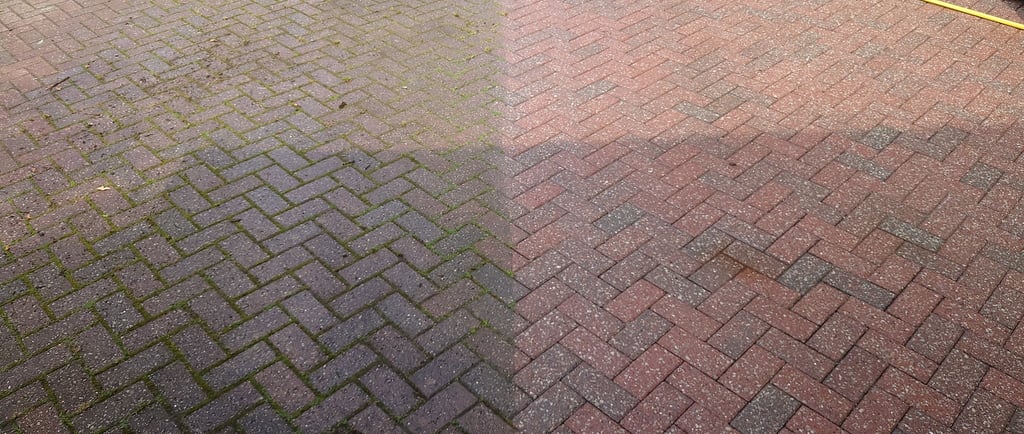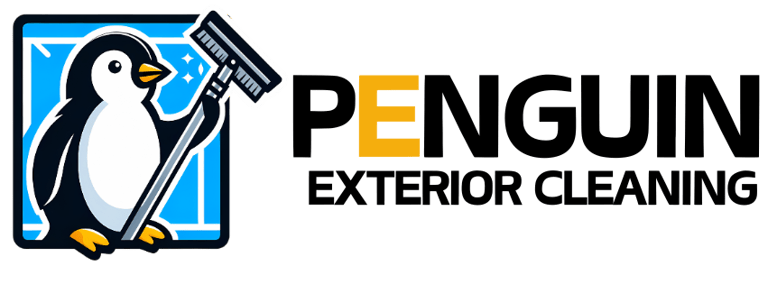Top Tips for Maintaining Your Pressure Washing Equipment
Discover essential maintenance tips for your pressure washing equipment. Learn daily, weekly, and seasonal care routines to keep your gear in top condition, ensuring optimal performance and longevity.
8/2/20243 min read


Pressure washing is an effective way to clean and refresh various surfaces around your home or business, but to keep your equipment running smoothly, regular maintenance is crucial. In this blog, we’ll dive into the essential steps for maintaining your pressure washing equipment. From daily checks to seasonal overhauls, these tips will help ensure your gear operates efficiently, extends its lifespan, and provides you with consistent performance.
Why Proper Maintenance of Pressure Washing Equipment is Essential
Pressure washers are powerful machines designed to tackle tough cleaning jobs. However, without proper maintenance, their performance can diminish, and they might even break down. Here’s why keeping your equipment in top shape is so important:
Optimal Performance: Well-maintained equipment operates at peak efficiency, delivering the best cleaning results and saving you time and effort.
Longevity: Regular maintenance helps prevent wear and tear, extending the lifespan of your pressure washer and avoiding costly repairs or replacements.
Safety: Properly maintained equipment reduces the risk of accidents or injuries caused by malfunctions, such as high-pressure hose bursts or engine failures.
1. Daily Maintenance Checklist
Before and after each use, follow these steps to ensure your pressure washer remains in good working condition:
Inspect Hoses and Connections: Check for any signs of wear or damage. Replace any frayed or cracked hoses immediately to prevent leaks or bursts.
Check Oil Levels: Ensure the engine oil is at the recommended level. Low or dirty oil can cause engine damage over time.
Clean the Nozzle: After each use, rinse the nozzle to remove any debris. This prevents clogging and maintains proper water flow.
Inspect the Pump: Check for any leaks or unusual noises from the pump. Address any issues immediately to avoid further damage.
2. Weekly Maintenance Tasks
In addition to daily checks, perform these tasks on a weekly basis:
Flush the System: Run clean water through the system to remove any remaining detergent or debris. This helps prevent clogs and keeps the pump in good condition.
Check Filters: Clean or replace the intake filter and the water filter as needed. Clogged filters can reduce performance and cause damage to the pump.
Tighten Connections: Ensure all bolts and connections are secure. Vibration during use can loosen components, leading to potential leaks or malfunctions.
3. Monthly Maintenance Routine
Monthly maintenance tasks are crucial for long-term equipment health:
Change the Oil: Replace the engine oil according to the manufacturer’s recommendations. Fresh oil ensures smooth engine operation and reduces the risk of overheating.
Inspect Spark Plug: Check the spark plug for wear and replace it if necessary. A worn spark plug can affect engine performance and starting.
Clean the Pump: Remove and clean the pump inlet screen and the unloader valve. This prevents blockages and ensures the pump operates efficiently.
4. Seasonal Maintenance
At the start of each season, perform a thorough inspection and maintenance routine:
Winterization: If you live in an area with freezing temperatures, winterize your pressure washer by draining all water and storing it in a dry, temperature-controlled environment. This prevents damage from frozen water in the pump and hoses.
Inspect Belts and Cables: Check all belts and cables for signs of wear or fraying. Replace any damaged components to ensure smooth operation.
Professional Servicing: Consider having your pressure washer serviced by a professional annually. They can perform a detailed inspection and address any issues you might have missed.
5. Common FAQs About Pressure Washer Maintenance
Q: How often should I change the oil in my pressure washer?
A: It’s generally recommended to change the oil every 50 hours of use or at least once per season. Always refer to your manufacturer’s guidelines for specific recommendations.
Q: What should I do if my pressure washer isn’t producing enough pressure?
A: Low pressure can be caused by several factors, including clogged nozzles, a damaged pump, or air leaks. Inspect and clean the nozzles, check the pump for leaks, and ensure all connections are secure.
Q: Can I use any detergent in my pressure washer?
A: No, use only detergents recommended by the manufacturer. Using the wrong detergent can damage your equipment and affect cleaning performance.
Conclusion
Maintaining your pressure washing equipment is vital for ensuring its longevity, performance, and safety. By following these daily, weekly, and monthly maintenance tips, along with seasonal checks, you’ll keep your gear in optimal condition and ready for any cleaning job. Proper care not only saves you money on repairs but also ensures your pressure washer delivers consistent, high-quality results every time.
Transforming Your Exterior
Expertise and tools to make your property shine
© 2024. All rights reserved.
info@penguinexteriorcleaning.co.uk
01386 366446
